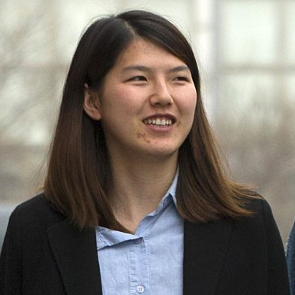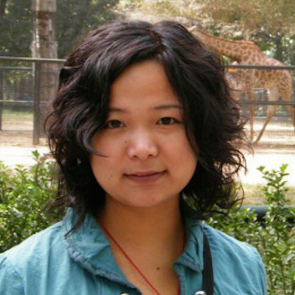Women Human Rights Defenders in China: Twenty Years After Beijing, What's Changed?
When I arrived at the 1995 Fourth World Conference on Women (FWCW) in Beijing, Chinese authorities welcomed hundreds of foreign dignitaries and international rights groups with rainbow coloured scarves. Yet, while China hosted what would come to be known as the pre-eminent gathering on gender equality for the next twenty years, the government was also systematically disempowering Tibetan women through its repressive policies towards the Tibetan Autonomous Region. At the opening of the conference in 1995, in protest against China's silencing of Tibetan women's voices, a delegation of exiled Tibetan women gagged themselves with the silk.
Throughout the conference, Chinese security officers filmed, photographed, and followed the Tibetan women. On the third day, the activists lead a workshop on "Women and Development in Tibet," which so angered the crowd that a counter-protest erupted. My self and colleague Frank Jennings – later known to the Chinese authorities as “Black Hand” for his outspoken work in support of women rights defenders in China – tried to act as human shields while Chinese men shouted and pushed Tibetan women to the floor.
In the twenty years since attending the FWCW, now referred to simply as "Beijing," I have continued to be inspired by the activism of women in China. Their powerful and creative calls for political, social, and cultural rights are as needed today as they were twenty years ago.
In the forty eight hours leading up to International Women's Day on 8 March 2015, Chinese police arrested five women planning a protest against sexual harassment.
Human rights defenders Zheng Churan, Wei Tingting, Wang Man, Li Tingting, and Wu Rongrong walked free six weeks later, but their arrest signifies a knee jerk reaction to shutting down protests in China – even protests not explicitly threatening the government.
In a campaign set to launch on 7 March, participants were to join a march in a Beijing park wearing stickers advocating safe sex. Others would set out tagging public transportation vehicles with stickings condemning sexual harassment. The activists had planned gatherings in Beijing and Guangzhou, each meant to raise awareness of sexual assault on public transportation in particular.
On the evening of 6 March 2015 – less than twenty four hours before the campaign was to launch – police officers in Guangzhou detained and searched the home of leading activist Zheng Churan, 25. Hours later, police officers in Beijing detained Churan's colleague, Li Tingting, 25. Over the next twenty-four hours, police rounded up three more female activists, Wei Tingting, 26, Wang Man, 33, and Wu Rongrong, 30, across China.
Authorities brought all five human rights defenders to Haidian District Detention Centre in western Beijing. They detained them in Haidian for the next thirty eight days.
Following the arrests, police officers pressed prosecutors charge the women with “organizing crowds to disturb public order.” In the past, these same human rights defenders have invaded men’s public toilets to protest the lack of women's facilities, shaved their heads to draw attention to gender inequality in higher education, and marched through a popular tourist district in Beijing wearing blood-spattered wedding dresses to raise awareness of domestic violence.
Despite government attempts to silence women's rights activists, reports of sexual harassment are multiplying across China. According to a 2013 survey from the China-based Canton Public Opinion Research Center, out of 1,500 women surveyed in Beijing, Shanghai and Guangzhou, 48 percent of those aged 16 to 25 said they faced increased incidents of sexual harassment. Sixty five percent of victims said their harassers physically touched them.
Chinese transport authorities, for their part, have advised that women not to wear “miniskirts, hot pants or other skimpy clothing” on buses and subways to avoid sexual harassment. Police in Beijing urged women to “shelter their bodies with bags, magazines and newspapers.”
The heaviest penalty for sexual harassment in China is 15 days in detention – about a third of the time Churan, Tingting, Man, Rongrong, and Tingting served for speaking against it.
On 13 April 2015, following protests in China calling for their release and pressure from international rights grups and governments, the five human rights defenders walked out of Haidian District Detention Centre, free from charge.
The women were released on bail pending trial, meaning the police can detain them again at any time. According to a lawyer, police will monitor the women for one year and they can not travel without informing the authorities.
China's Foreign Ministry spokesman Hong Lei issued a curt retort to United States Vice President Joe Biden, who had called upon his Chinese leaders to release the activists:
"We urge the United States to respect China's judicial sovereignty and not use any pretext to interfere in China's internal affairs," he told a news briefing. “China is a country of rule of law.”
The “rule,” in this instance, seems to be that China will not tolerate attempts at reform.
China's targeting of women human rights defenders is troubling twice over. It demonstrates both a systemic and institutionalized acceptance of sexism, and an absolute intolerance for reform effort of any kind.
The pejorative stance of police officers towards women demanding an end to public sexual harassment is not just condescending, it is emboldening perpetrators who publicly abuse women in China. Likening the work of human rights defenders to “picking quarrels” is an attempt to delegitimize and stigmatize Chinese women on the front lines of reform.
The knee jerk reaction to protest in China – not a protest demanding the downfall of a regime or the other throw of a government, but gender equality – also demonstrates the Chinese authorities' absolute fear of reform. So great has their aversion to free speech become, they are cracking down on women who say they will no longer tolerate men groping them on the train to work.
Gender equality is the latest victim of the Chinese government's campaign to root out all forms of dissent. A “public order” that accepts sexual harassment is a public order that needs disrupting. For there to be any improvement, the government must end its decades-long persecution of women fighting for change in China.





